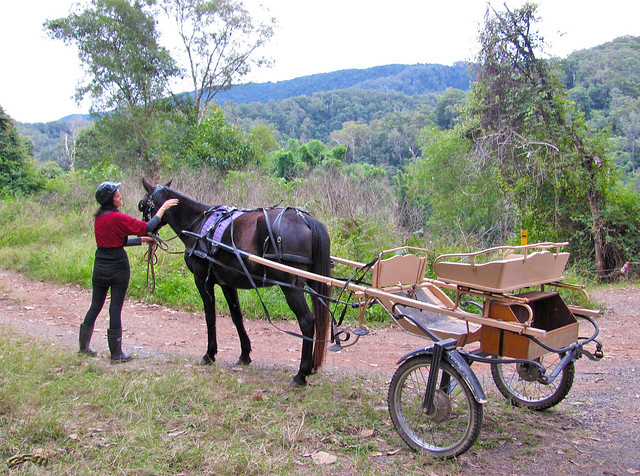Life on Earth, but for how much longer?
We ignore James Lovelock's apocalyptic vision of the future, The Revenge of Gaia, at our peril, says Robin McKie
There is a classic short story by Robert Sheckley, the American science-fiction author, which tells of a group of settlers who land on a distant planet. There they begin their work: leveling mountains, changing the atmosphere and ploughing up wild places to make new homes for mankind.
Sheckley, who died a few weeks ago, was a sci-fi satirist and his tale was merely meant as a joke, albeit a pointed one. Yet I found images of those startled colonists continually popping into mind on reading James Lovelock's latest diagnosis of the state of planet Earth.
Just like those sci-fi settlers, humanity is about to get the elbow, it seems. Carbon dioxide is being pumped into the atmosphere at such rates that a point of no return, 'a tipping point', will be reached in a decade or so and global temperatures will abruptly soar. And that will be that, says Lovelock.
Icecaps will disappear and, without their reflectivity to bounce the Sun's rays back into space, temperatures will rise even faster. Methane and carbon dioxide, currently trapped in frozen tundra, will then be released, leading to further warming. Dozens of other feedback cycles will be disrupted. Our planet will burn like a crisp and, along with it, civilisation. Humanity, returned to its former ape-man status, will be lucky to hang on, grunting in the odd, deep cave. 'The world is fighting back,' says Lovelock. 'Like the Norns in Wagner's Der Ring des Nibelungen, we are at the end of our tether, and the rope, whose weaves define our fate, is about to break.'
It is grand, biblical stuff, like an evangelical preacher cursing his wayward congregation. Miserable ecological sinners, we are all doomed. 'The bell has started tolling to mark our ending,' Lovelock tells us. 'Only a handful of the teeming billions now alive will survive.' Thus science meets the Book of Isaiah.
Such rhetoric, turned up to regulo eight throughout the book, might tempt the odd snigger, if it wasn't also so hideously convincing and appalling in its implications. After all, Lovelock is one of our most distinguished ecologists, the environment movement's sanest pontificator and a scientist of considerable distinction. We should take note of his words, for all their fire and brimstone.
Lovelock is renowned for his development, with biologist Lynn Margulis, in the early 1970s of the idea of Gaia, 'the dynamical physiological system that has kept our planet fit for life for more than three billion years'. According to the theory, all breathing things, from algae to elephants, are locked in self-regulating cycles of reproduction and behaviour which optimise conditions for life's sustenance. Or as Lovelock puts it: 'Life on Earth actively keeps the surface conditions always favourable for whatever is the contemporary ensemble of organisms.'
The concept of Gaia was initially greeted with scepticism by researchers who thought it suggested Earth was a living entity. Indeed, many greenies still think (wrongly) of Gaia this way. In fact, a better analogy is that of a giant self-regulator valve, like those used by engineers to control machine outputs. Used this way, the idea went on to help scientists sharpen their predictive powers, particularly over climate change. Today Gaia is mainstream.
Unfortunately, just as we have come to accept the notion, it has become plain that we are battering Gaia so badly she simply cannot take any more. Soon, she will switch to red-hot mode, as has happened before, and, by the time she has recovered, the works of man will have been turned to dust.
Such a future is not inevitable. Lovelock is at pains to suggest escape routes, most controversially by calling for the rapid expansion of nuclear energy programmes, the one large-scale, carbon-free type of power generation we possess. In general, however, he is gloomy to the point of near suicide. But given the rate at which we are rushing pell-mell to disaster, I cannot blame Lovelock. Kyoto, as he says, was a mere act of appeasement to polluters. We are a 'plague of people', he says, an infestation that has wrecked Earth. Very soon, we will pay the reckoning.

image - http://farm7.static.flickr.com/6077/6060359645_e2fccaf06d_b.jpg
For further enlightening information enter a word or phrase into the search box @ New Illuminati or click on any label/tag at the bottom of the page @ http://nexusilluminati.blogspot.com
And see
The Her(m)etic Hermit - http://hermetic.blog.com
New Illuminati – http://nexusilluminati.blogspot.com
New Illuminati on Facebook - http://www.facebook.com/pages/New-Illuminati/320674219559
This material is published under Creative Commons Copyright (unless an individual item is declared otherwise by copyright holder) – reproduction for non-profit use is permitted & encouraged, if you give attribution to the work & author - and please include a (preferably active) link to the original along with this notice. Feel free to make non-commercial hard (printed) or software copies or mirror sites - you never know how long something will stay glued to the web – but remember attribution! If you like what you see, please send a tiny donation or leave a comment – and thanks for reading this far…
From the New Illuminati – http://nexusilluminati.blogspot.com

Promo Terbaik dengan Dealer Samgong Online Yamalo-Nenets okrug Situs www.pokerusia.pw Melalui Standard Chartered Bank Kode Bank 051.
ReplyDelete